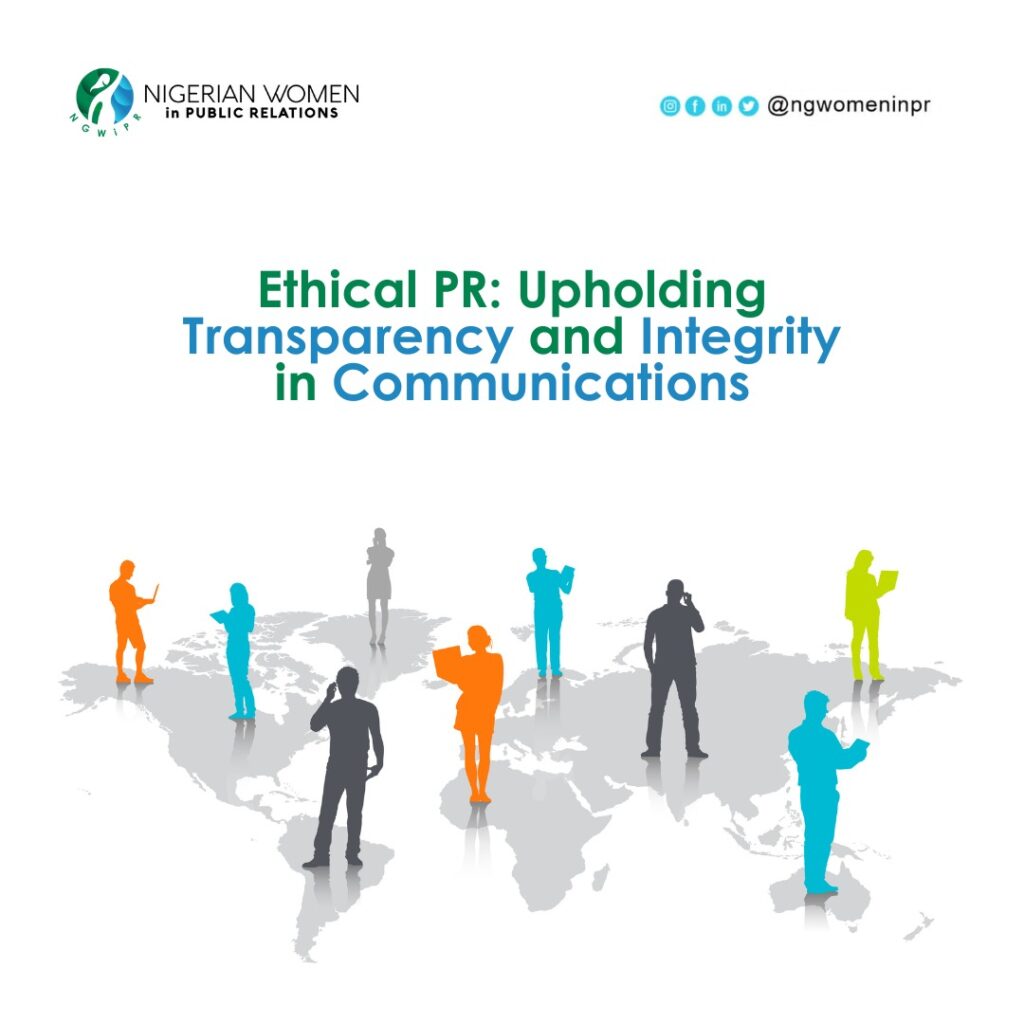Public Relations (PR) is often referred to as the art of shaping public perception, but it\’s also a discipline built on trust. Trust is the currency of the PR industry, and without it, our efforts are futile. This trust is grounded in ethical PR practises, which are not just a choice but an obligation for every PR professional. In this blog post, we\’ll explore the vital role of ethics in PR and how it shapes transparent and integrity-driven communications.
The Foundation of Ethical PR:
Ethical PR is a commitment to conducting PR activities with honesty, integrity, and transparency. It\’s about adhering to a set of moral principles that guide our actions and decisions in the PR field. These principles include:
- 1. Honesty: PR professionals must always tell the truth. Whether communicating with clients, the media, or the public, honesty is non-negotiable.
- 2. Transparency: Transparency means being open and candid about the information we share. It involves disclosing any potential conflicts of interest and providing context when presenting facts.
- 3. Privacy: Respecting individuals\’ privacy is essential in PR. Personal information should be handled with care and only used for legitimate PR purposes.
- 4. Fairness: Fairness involves treating all parties fairly and without discrimination. It means giving equal consideration to all stakeholders in a PR campaign.
- 5. Respect: PR professionals should show respect for all individuals, regardless of their background, beliefs, or opinions.
The Impact of Ethical PR
- 1. Builds Trust: Trust is the bedrock of any successful PR campaign. When the public trusts the information you provide, they are more likely to engage with your messages and support your goals.
- 2. Protects Reputation: Ethical PR practices help protect your organisation\’s reputation. By being honest and transparent, you can address issues openly and maintain public trust even during challenging times.
- 3. Fosters Long-Term Relationships: Ethical PR is not just about short-term gains but building enduring relationships. When stakeholders know they can rely on your integrity, they are more likely to engage with your organisation over time.
- 4. Meets Legal and Regulatory Requirements: Ethical PR ensures that your organisation complies with legal and regulatory requirements related to communications and privacy.
Challenges of Ethical PR
While ethical PR is essential, it\’s not always easy to navigate. PR professionals often face challenges such as conflicting interests between clients and the public, pressure to deliver results quickly, and the temptation to bend the truth for short-term gains. However, ethical PR requires a commitment to doing what\’s right, even when it\’s difficult.
Ethical PR is not a luxury but a necessity in today\’s communications landscape. It\’s the key to building trust, protecting reputation, and fostering long-term relationships. Every PR professional should embrace ethical practices as the cornerstone of their work. In a world where information is abundant, honesty, transparency, and integrity set you apart as a trusted source of communication. Ethical PR isn\’t just a choice; it\’s the only path to sustainable success in the field.

